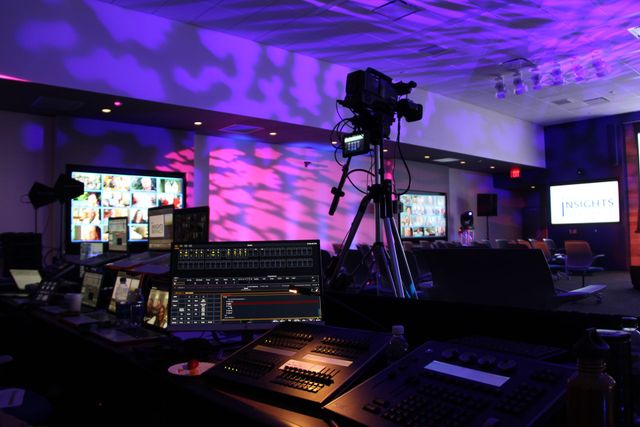Budget-Friendly Ideas to Boost Your Event Productions
Budget-Friendly Ideas to Boost Your Event Productions
Blog Article
Comprehending How Events Manufacturing Functions: A Comprehensive Overview of the Process
The ins and outs of event production need a systematic strategy that integrates multiple phases, each playing a crucial role in the general success of an occasion. Recognizing the nuances of budgeting, resource appropriation, and on-site monitoring is vital for any type of expert in this area.
Initial Planning and Idea Development
Reliable initial preparation and idea development offer as the foundation for effective events manufacturing. This phase includes specifying the occasion's purpose, target audience, and preferred outcomes. A clear vision is vital; it overviews all subsequent decisions and helps align the group's efforts toward a common goal.
Throughout this phase, brainstorming sessions can be vital. Involving stakeholders, including customers, enrollers, and possible attendees, cultivates a collective environment that creates innovative ideas. Additionally, extensive marketing research ought to be performed to understand patterns, choices, and potential obstacles.
When the concept is established, it is critical to develop an in-depth event summary. This synopsis should consist of the occasion's style, layout, and key activities. Developing a timeline is equally essential, as it helps to take care of due dates and jobs efficiently.
Budgeting and Resource Appropriation
With a strong concept in place, attention needs to transform to budgeting and source allowance, which are crucial components in carrying out the occasion efficiently. A distinct budget functions as a roadmap, detailing all anticipated costs and available sources. It starts with recognizing taken care of and variable expenditures, including place leasing, wedding catering, staffing, technology, and advertising. Each group ought to be carefully determined to avoid overspending and to ensure that funds are alloted properly.
Resource allocation includes designating both human and economic resources to numerous tasks and parts of the occasion. Prioritization is key; important aspects must get ample funding while less vital aspects might require a more conventional approach. Contingency planning is critical-- designating a part of the spending plan for unforeseen expenses can alleviate economic risks.
Additionally, reliable communication among group participants pertaining to spending plan restraints cultivates partnership and technology. This promotes the responsible use resources and motivates imaginative services to stay within budget plan. Ultimately, a tactical method to budgeting and source appropriation lays the foundation for an effective event, allowing organizers to concentrate on supplying a memorable experience for attendees while preserving economic honesty.
Logistics and Control
Navigating the complexities of logistics and control is important for the smooth execution of any kind of occasion. This stage involves meticulous planning and company to make certain that all parts function in harmony. Key elements include venue option, transportation plans, and the organizing of different tasks.
This includes comprehending the layout, gain access to factors, and available sources. Collaborating these aspects requires collaboration with vendors, suppliers, and transportation services to guarantee timely deliveries and pickups.
One more important facet is the development of a comprehensive timeline that details all logistical components review leading up to the event. This timeline works as a roadmap, outlining vital landmarks and deadlines for jobs such as equipment configuration, providing services, and audiovisual setups. Regular interaction with all stakeholders is important to deal with any type of possible problems proactively.
Execution and On-Site Monitoring
Effective execution and on-site administration are crucial for changing thorough plans into fact during an event. This stage entails the smooth coordination of various elements, guaranteeing that every detail aligns with the well established vision. On-site supervisors play a critical duty, serving as the main point of interaction among suppliers, staff, and stakeholders. Their his response capability to make real-time decisions can significantly impact the event's success.
A well-defined routine is necessary, functioning as a roadmap for all tasks. Event supervisors should ensure that configuration occurs on schedule, adhering to timelines for sound checks, providing shipments, and visitor arrivals. Reliable analytical abilities are additionally crucial; unanticipated challenges can emerge, needing quick reasoning and versatility to maintain the event's flow.
Additionally, attention to guest experience is critical. Checking visitor interactions, ensuring safety protocols are followed, and providing assistance team to deal with problems promotes a positive ambience. This level of involvement not only boosts the total experience yet also shows the expertise of the occasion group. Event Productions. Inevitably, effective implementation and on-site administration joint on comprehensive prep work, efficient communication, and a commitment to delivering a phenomenal event for all entailed.

Post-Event Evaluation and Responses
The culmination of any kind of event lies not just in its implementation but additionally in the detailed assessment that adheres to. Post-event examination is essential for determining the total success of the event and identifying areas for renovation. This process commonly entails celebration feedback from various stakeholders, including participants, suppliers, and team participants, to gain an extensive point of view on their experiences.
To structure the assessment, occasion coordinators frequently utilize meetings and studies, focusing on essential performance signs such as attendee complete satisfaction, logistical performance, and budget plan adherence. Assessing this information allows planners to assess whether the event met its purposes and to understand the toughness and weaknesses of the execution.
By systematically resolving comments and executing modifications, occasion experts can enhance their methods, inevitably leading to more successful and impactful occasions. In conclusion, post-event analysis is a vital step in the occasion manufacturing process that ensures recurring development and quality in future undertakings (Event Productions).
Conclusion

The complexities of occasion production demand a systematic technique that incorporates numerous stages, each playing a critical role in the total success of an event.With a strong concept in area, interest has to turn to budgeting and resource allowance, which are vital elements in implementing this page the event successfully.Source allotment includes assigning both human and economic sources to numerous jobs and components of the event. Inevitably, a critical approach to budgeting and source appropriation lays the foundation for a successful event, making it possible for organizers to focus on supplying a memorable experience for attendees while keeping monetary honesty.

Report this page